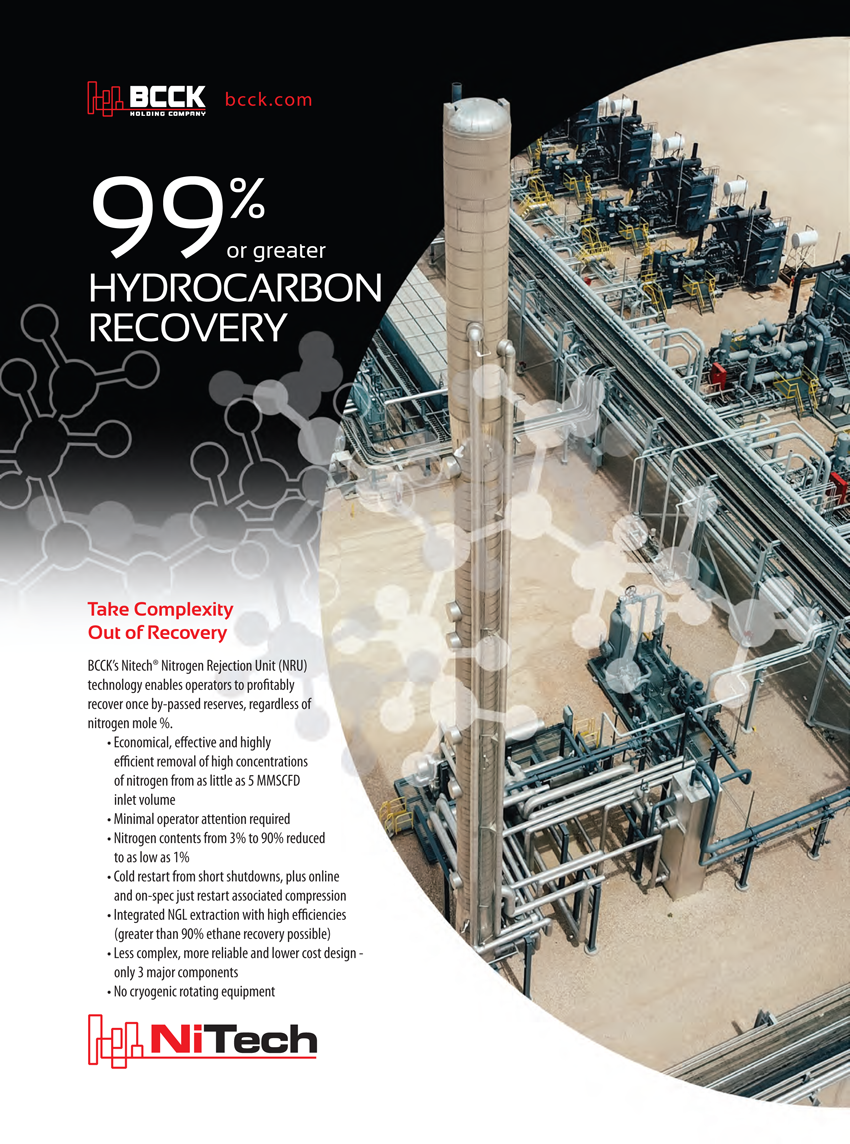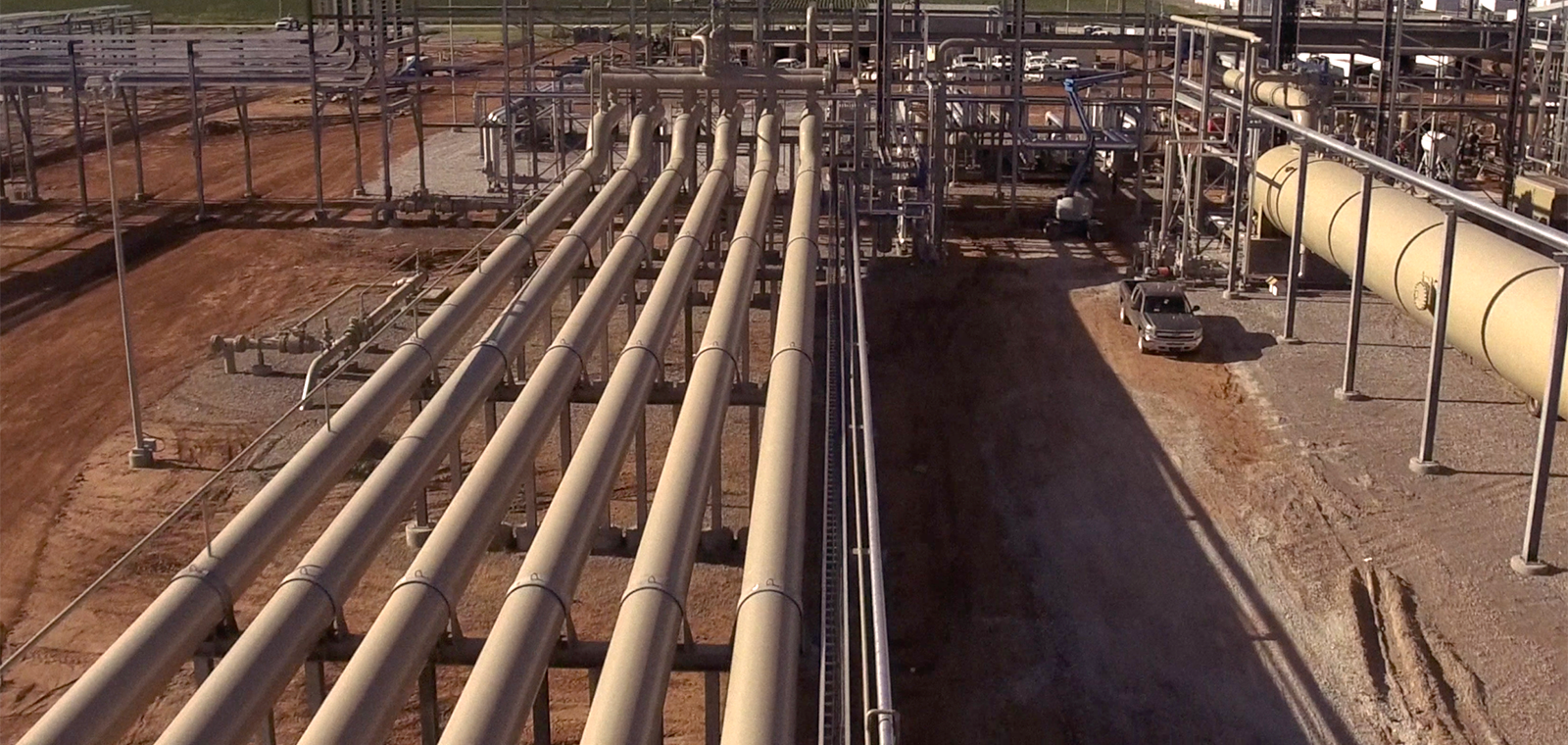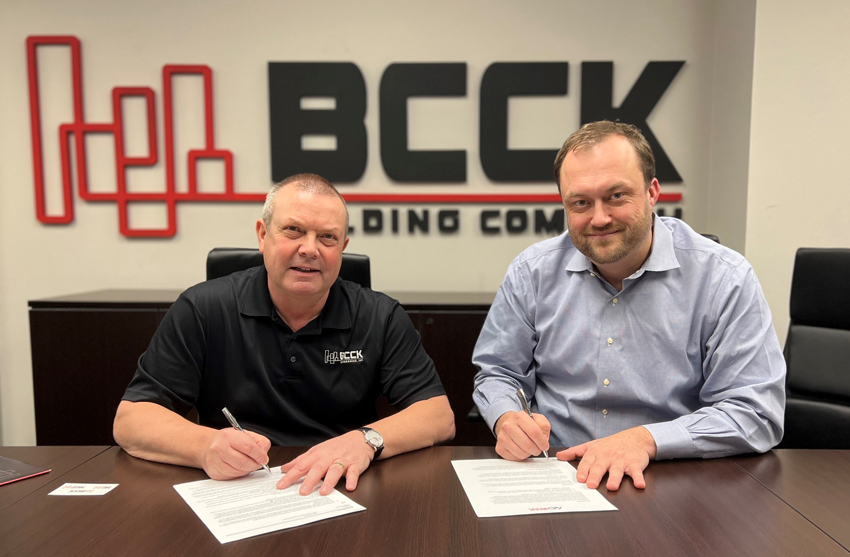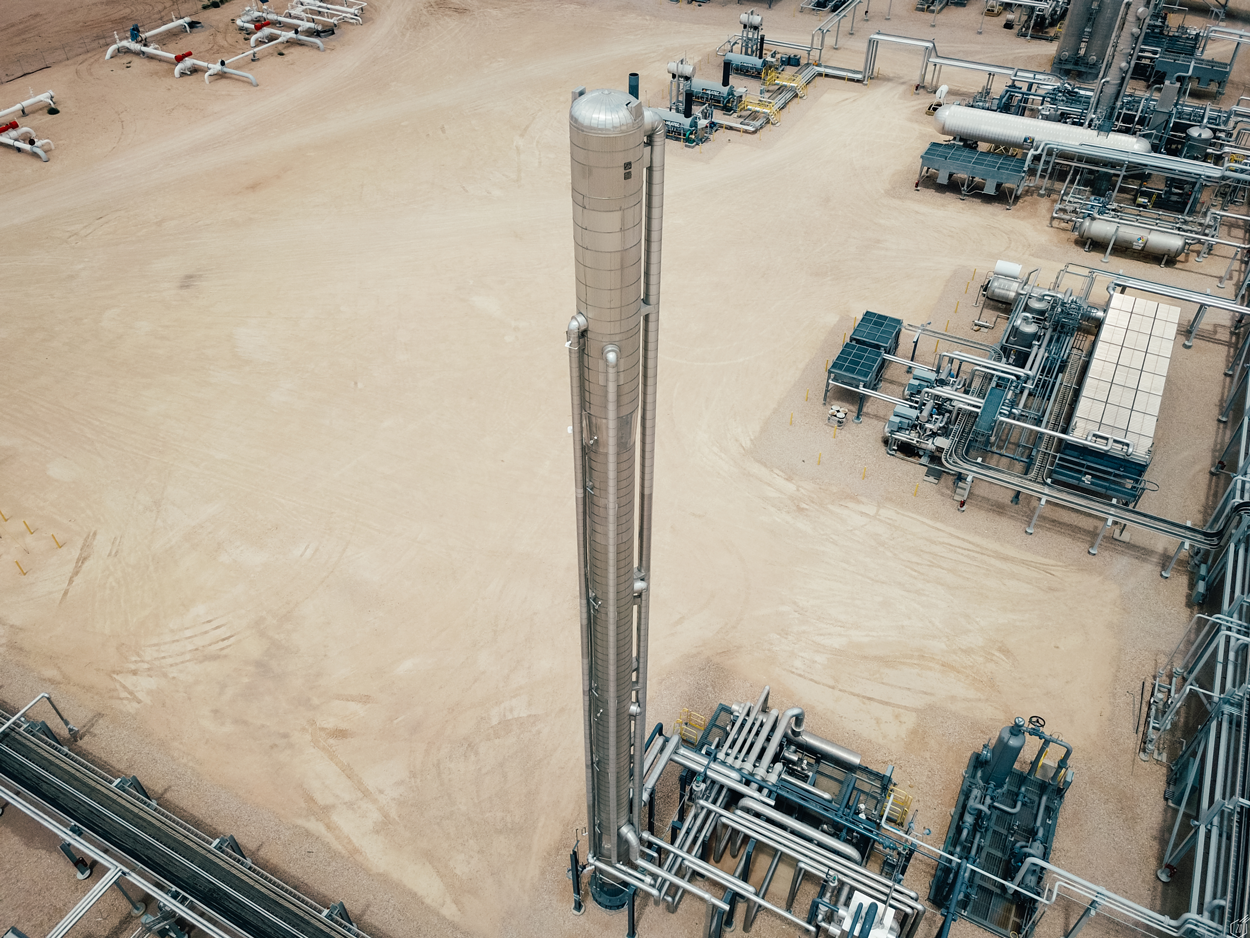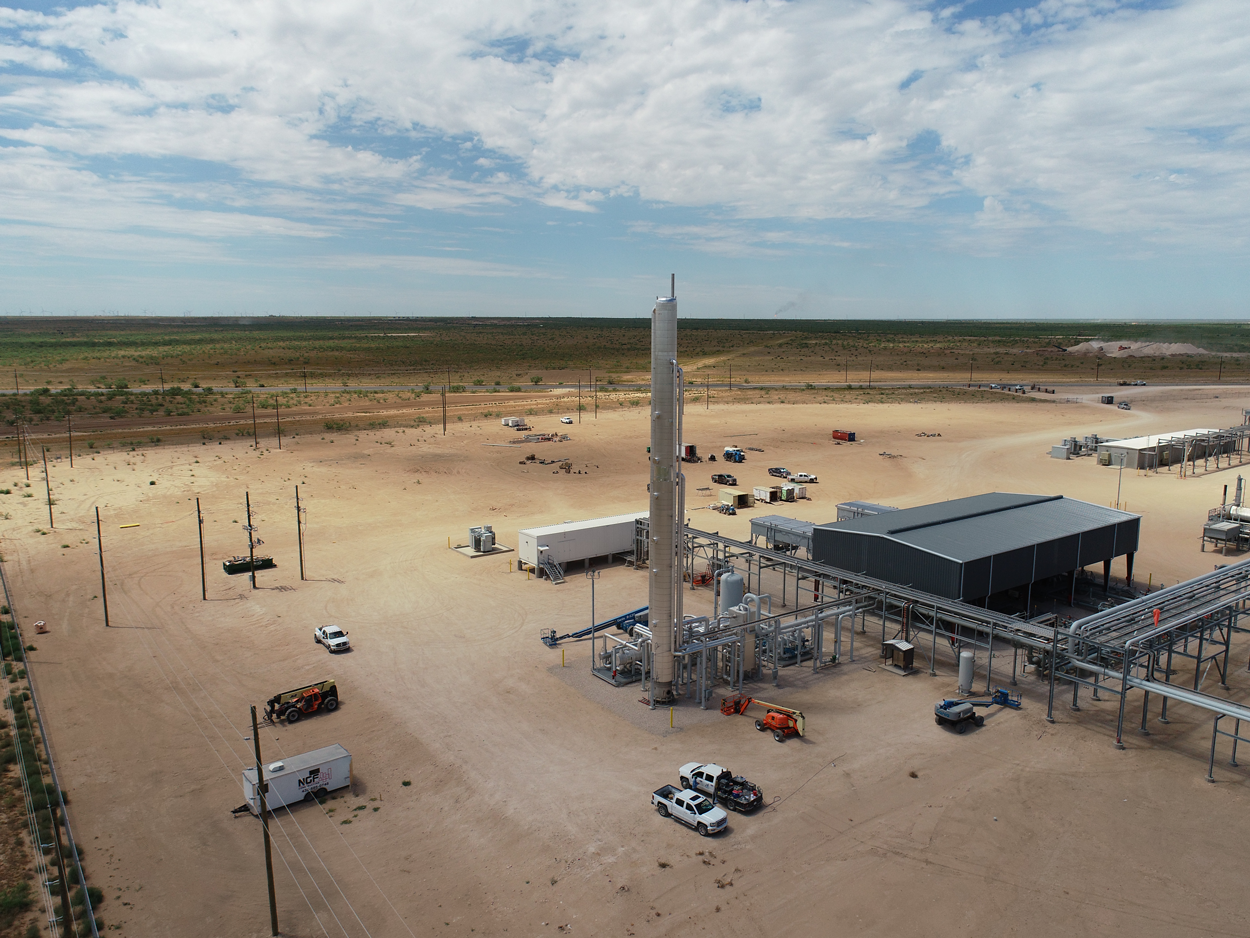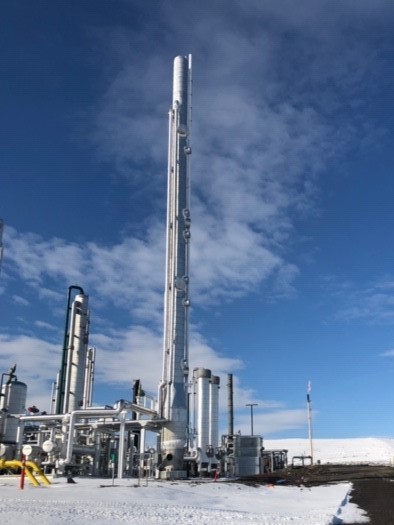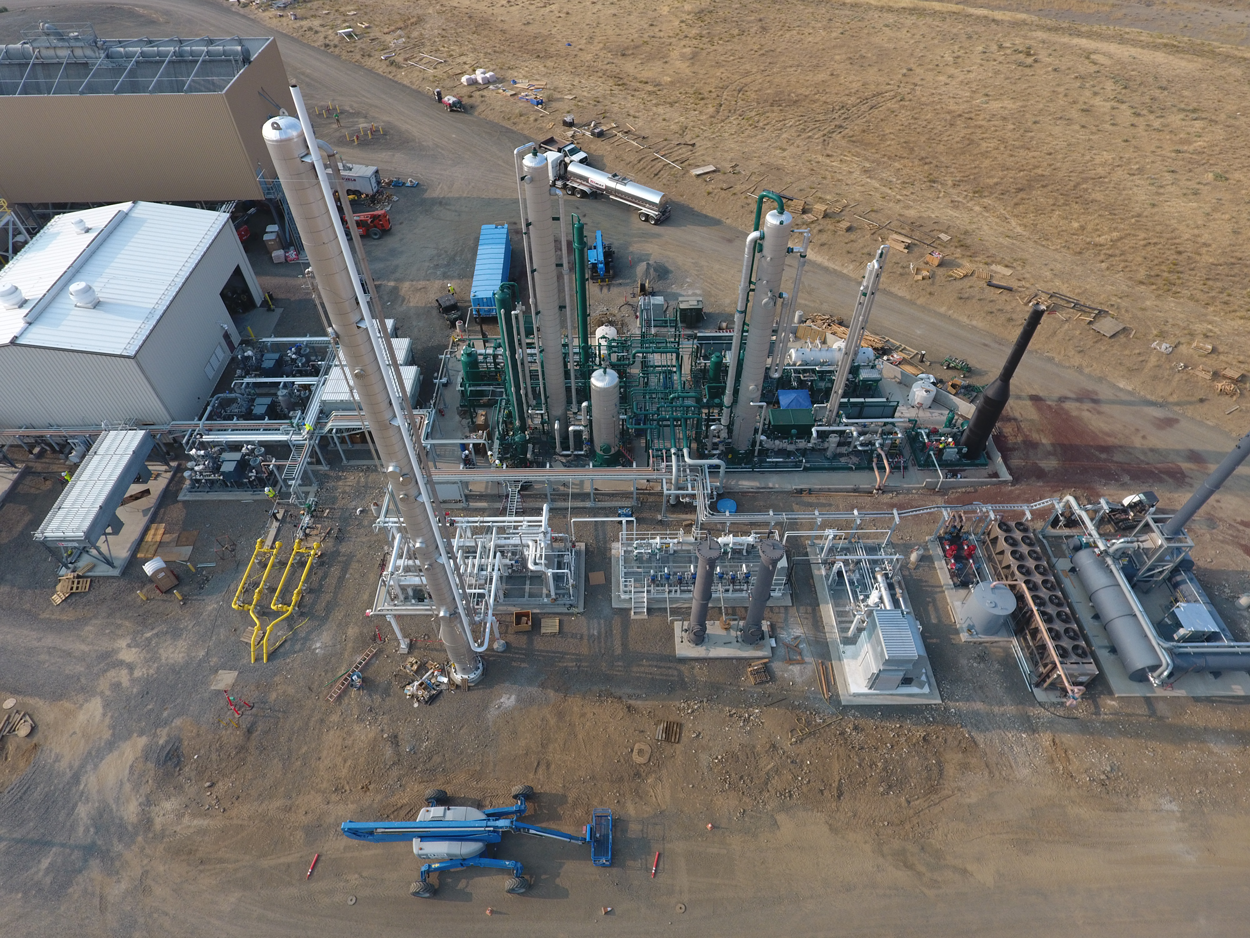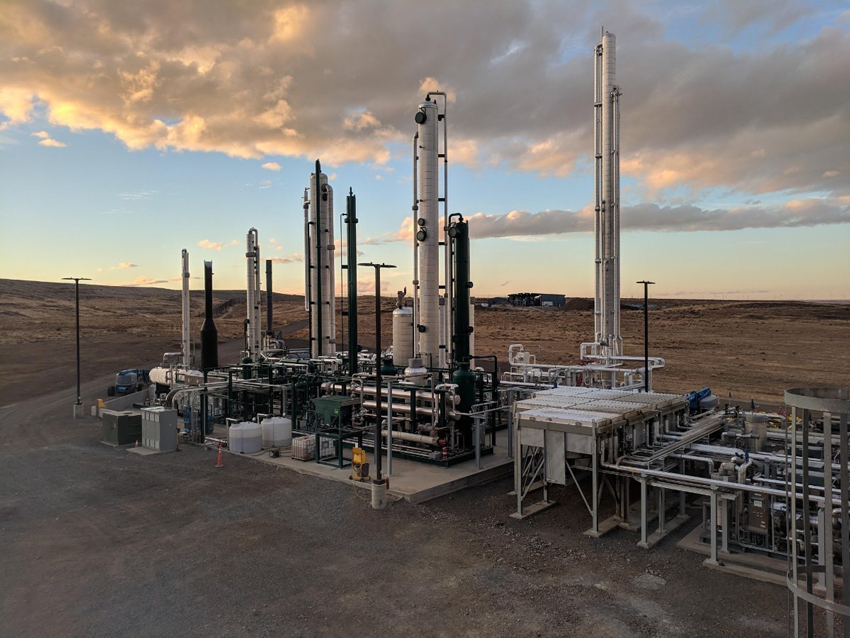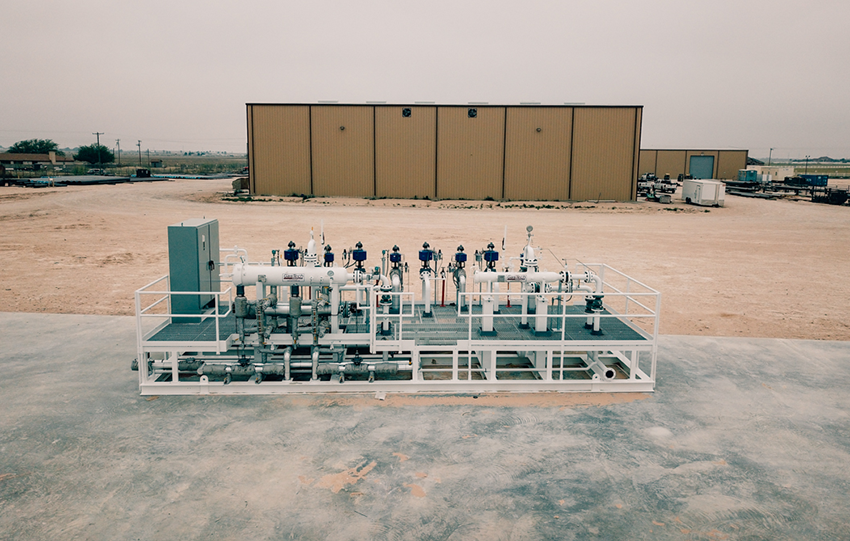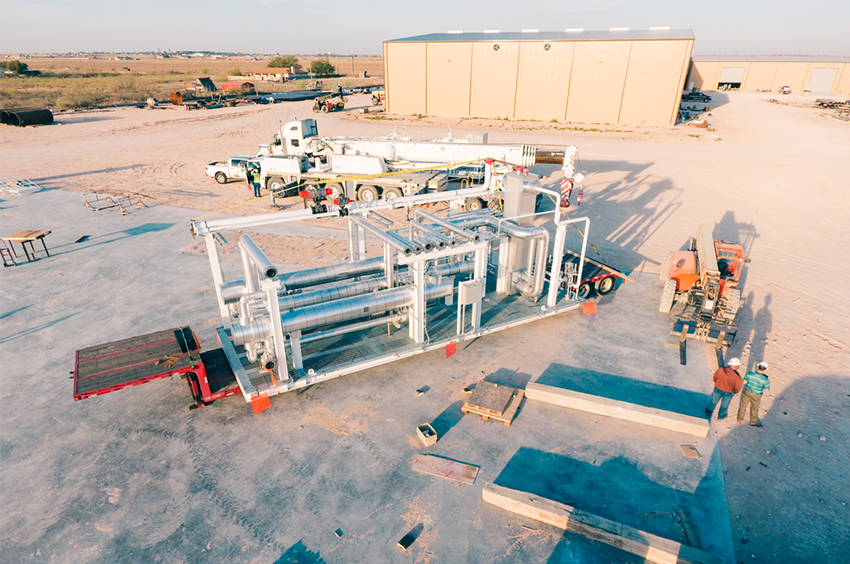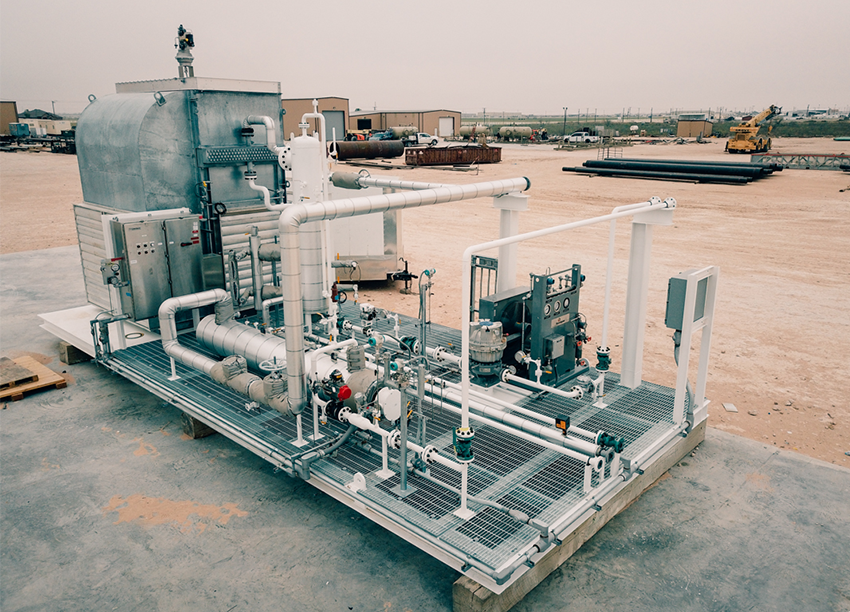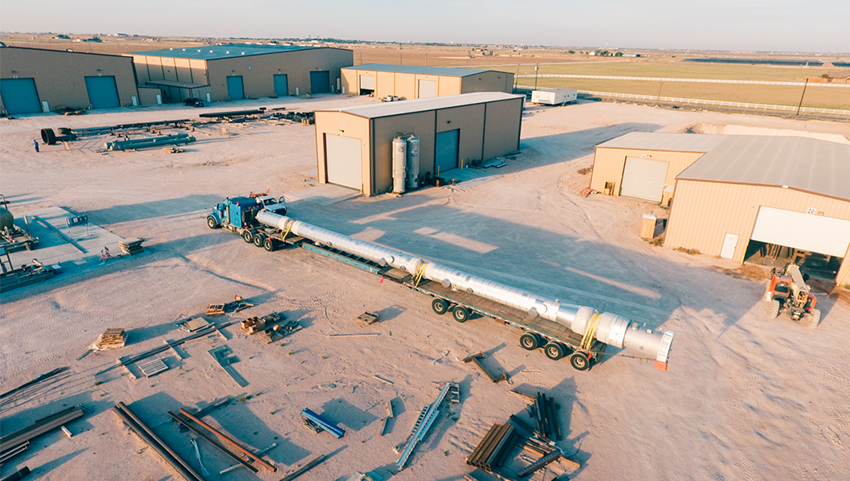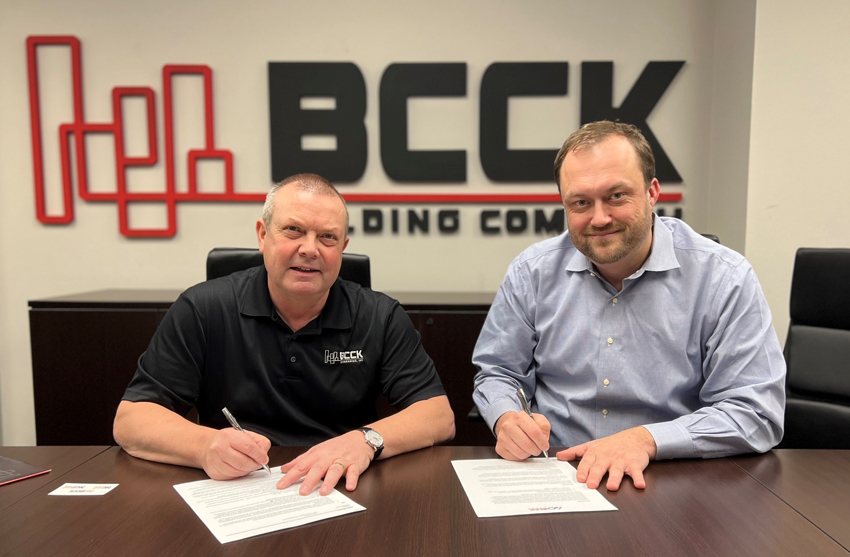Landfill gas is generated as a natural result of the decomposition of organic material in landfill sites via evaporation of volatile organic compounds, chemical reactions between waste components and microbial action. Landfill gas is composed of approximately 50% methane and 50% CO2, along with trace amounts of other organic compounds and is therefore the third largest source of methane generation in the United States. Because of the potential impact on climate change, the U.S. Clean Air Act of 1990 required that many large landfill sites install gas collection and control systems, requiring facilities to collect the landfill gas they produce.
In the United States, the number of landfill gas capture projects is increasing significantly, adopted in large part to minimize energy costs and reduce greenhouse gas emissions. Once the methane gas is collected and treated, it can be used for electricity generation or processed into pipeline quality natural gas by removing various contaminants and components before being sold offsite. In this way, landfill gas is transformed into a renewable natural gas resource.
The Need for Nitrogen Removal
The system associated with gathering landfill gas operates in a vacuum, pulling in nitrogen, oxygen, and other contaminants from the atmosphere. Since nitrogen is considered an inert gas, it is essential to remove it from the associated, more valuable methane to ensure a more marketable and saleable natural gas that can be used for multiple applications. Once processed, the natural gas passes into a sales pipeline operated by natural gas companies and ultimately sold to an end user.
A landfill reacts to changes in atmospheric, or ‘barometric’ pressure. For instance, on stormy, high-pressure days, there can be an observable swing in the quality and quantity of methane extracted from the site. In these higher-pressure conditions, methane is more difficult to extract. If operators do not pay heed to changes in barometric pressure and keep pulling the gas to the same extent that they do on a low-pressure day, they run the risk of over-pulling, and killing the microbes that generate the methane at a micro level. By introducing a process of dynamic tuning that reacts to changes in barometric pressure, landfill gas operators can adjust their vacuum pressures and flows accordingly.
BCCK specializes in nitrogen rejection, helium recovery, carbon dioxide removal and sequestration, coalmine methane and oxygen removal. The company is well known for its patented NiTech® technology, deployed in the form of nitrogen rejection units (NRUs). Although the process of removing the nitrogen from landfill gas is not a particularly new one, BCCK’s high efficiency NiTech® NRUs maximize the methane recovery, and minimize the horsepower, equipment and footprint required to achieve it. Increasingly, BCCK is embarking upon the “green” initiative of promoting a renewable resource by placing NiTech® NRUs in renewable natural gas applications, which has the potential to deliver more economical solutions for landfill sites across the United States.
Klickitat Renewable Natural Gas Project
In 2018, Washington State’s Klickitat Public Utility District selected BCCK’s NiTech® nitrogen Rejection Unit (NRU) to perform a key role in transforming landfill gas into nearly 100% pure renewable natural gas at the H.W. Hill Renewable Natural Gas Facility, located at the Roosevelt Regional Landfill in Klickitat County. The NiTech® NRU for Klickitat was designed to remove nitrogen from methane gas collected from the landfill, processing 7.2 MMSCFD of gas and recovering 99.5%+ of the methane as a saleable product. A dehydration system in front of the NRU dehydrates from the upstream solvent process. After passing through the NRU, the biogas will be received at the Williams Northwest Pipeline interconnection. In a partnership between Klickitat and BP, BP is allocated a designated amount of the gas with the rest passing through to the open market. Currently, Puget Sound Energy (PSE) receives an estimated 550,000 dekatherms per year of the gas allowing their natural gas customers the option of renewable natural gas.
Klickitat’s plant operator, Leonard Swift, has operated landfill gas plants, engines, and turbines for 20 years. Commenting on the NRU used in the Klickitat project, he said, “BCCK’s NRU is truly a ‘set it and forget it’ machine. There are so few moving parts that once it has been set to run, it is virtually hands-free. At one point, because of the barometric pressure change in the area, we were experiencing too much nitrogen coming into the plant. For several days, we were seeing up to 10.5 % of nitrogen in the landfill gas, when usually we would expect to see less than 7 or 8%. Even when other parts of the plant struggled during this time of increased nitrogen influx, I never had to worry about the NRU not functioning to maximum efficiency.”
The project duration was approximately 40 weeks and BCCK was proud to play such an important role in the gas upgrading of a landfill to a high BTU landfill gas plant, which is contributing to lowering greenhouse gas emissions.
Spotlight on the Technology
Most nitrogen rejection technologies typically associated with landfills are not economically scalable to the larger landfills, require more compression, and have lower recoveries than what can be provided by the NiTech® process. BCCK’s NiTech® NRUs feature a simple process design comprised of only a few major components, which requires minimal operator attention, provides a smaller footprint, and provides an overall more efficient and cost-effective solution when compared to other technologies.
There have been several revisions to BCCK’s NiTech® process design over the past three decades. Today, the latest Style IV design features a new, modular skidded design that allows greater flexibility with respect to compositional changes or flow capacity changes than ever before. With improved efficiencies on residue gas compression, NiTech® Style IV can be modified to produce LNG from the incoming gas and can be customized to extract any incoming helium. With lower required horsepower compression and higher recovery, NiTech® is a simple, flexible, and efficient NRU.
The NiTech® technology is not constrained by low mole % nitrogen, which prevents a recycle stream and the associated increased OPEX costs. The NRU can process inlet gas to less than 1.0 mole %, allowing BCCK to slipstream and reduce both CAPEX and OPEX to the benefit of the customer. The ability to handle flexible and higher mole % nitrogen in gas is important to meeting downstream pipeline specification and the fact that the NiTech® process emits no non-methane VOCs makes it an environmentally friendly solution.
The Future of Landfill Renewable Natural Gas
Landfill renewable natural gas projects are becoming increasingly common, with Eastern Europe being particularly fast on the uptake of such techniques to maximize profits, reduce waste and improve the environmental credentials of landfill sites. In the United States, landfill renewable natural gas projects are categorized as “renewable” projects, therefore government subsidies and carbon credits are available to help make the projects even more economically attractive.
The renewable natural gas projects that are undertaken at landfill sites across the United States are contributing toward global efforts to reduce greenhouse gas emissions and currently offset approximately 2 million tons (short tons) per year of coal – the equivalent of the energy needs of 400,000 homes. As a result of BCCK’s proven successful track record within cryogenic gas processing and specifically nitrogen rejection over the past 40 years, BCCK has to date built 30 NRUs for 30 various applications, ranging in processing capacity from 3 MMSCFD – 100 MMSCFD of gas. Although each unit is centered on the core NiTech® design, each facility has its own unique challenges due to differing gas compositions, flow rates and operating conditions.
BCCK aims to expand its NiTech® NRUs to landfills across the United States, further highlighting its proven technology and ability to deliver fewer footprint and compression requirements in terms of horsepower, at reduced CAPEX to alternative solutions on the market.
Whereas most landfill applications occupy the small to mid-size range of 3 – 20MMSCFD of gas, BCCK has experienced a significant uptick in requests for NRUs for high BTU plants across the United States. Archaea Energy is the latest project developer to enter a contract with BCCK for an NRU on the Keystone Sanitary Landfill Site, north east of Philadelphia, Pa. This new project, which is scheduled for start-up in Q2 or Q3, 2021, will be one of the largest in the world at 2.5 times bigger than the Klickitat project, with approximately 20MMSCFD of gas passing through the NRU.
In conclusion, going back to the Klickitat project, Klickitat’s Leonard Swift reflected, “All of the operators have great things to say about BCCK’s NRU. Since landfill gas is the latest, greatest thing going for the renewable energy market and a gold mine in terms of return on investment, the NiTech® NRU provides a great opportunity for other landfills and project developers.”
